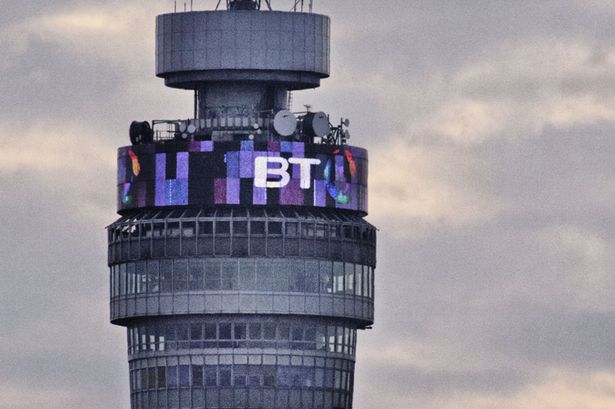BT Gets Competition Approval For £12.5bn EE Takeover

BT will complete EE acquisition later this month after CMA find no evidence that retail or wholesale mobile and broadband markets will be negatively affected
BT is set to complete the £12.5 billion takeover of EE later this month after the Competitions and Markets Authority (CMA) confirmed a provisional ruling that the deal would not significantly reduce competition in any of the markets that either company operates in.
A number of BT and EE’s rivals raised concerns about the combined company’s power in the mobile, broadband and wholesale markets, but the CMA said it found no evidence to suggest a negative impact following a “complex, detailed and rigorous” process.
Competition approval
 “Since our provisional findings, we have taken extra time to consider responses in detail but the evidence does not show that this merger is likely to cause significant harm to competition or the interests of consumers,” said John Wotton, inquiry chair.
“Since our provisional findings, we have taken extra time to consider responses in detail but the evidence does not show that this merger is likely to cause significant harm to competition or the interests of consumers,” said John Wotton, inquiry chair.
“The retail mobile services market in the UK is competitive, with 4 main mobile providers and a substantial number of smaller operators. As BT is a smaller operator in mobile, it is unlikely that the merger will have a significant effect. Similarly, EE is only a minor player in retail broadband, so again it is unlikely that the merger will have a significant effect in this market.
“We have also found that in supplying services such as backhaul, wholesale mobile or wholesale broadband services a combined BT/EE would not have both the ability and the incentive to disadvantage competitors such that there would be significant harm to competition.”
BT mobile
BT, which sold O2 to Telefonica in 2005, has returned to the mobile market in a bid to strengthen its ability to offer quad-play services and to facilitate the development of hybrid networks comprising mobile and fixed infrastructure. Since then it has offered business mobile services for some time through MVNO agreements and now offers consumer 4G deals through its current arrangement with EE.
The transaction should close on 29 January, at which point Deutsche Telekom and Orange, the current joint-owners of EE, will become BT shareholders with respective stakes of 12 percent and 4 percent. EE will continue as a distinct business within BT for the time being, led by Marc Allera, who replaces the outgoing Olaf Swantee.
“It is great news that the CMA has approved our acquisition of EE,” said BT CEO Gavin Patterson. “We are pleased they have found there to be no significant lessening of competition following an in-depth investigation lasting more than ten months.
“The combined BT and EE will be a digital champion for the UK, providing high levels of investment and driving innovation in a highly competitive market. I have no doubt that consumers, businesses and communities will benefit as we combine the power of fibre broadband with the convenience of leading edge mobile services. I look forward to welcoming EE into the BT family.”
Hybrid networks
 EE will continue as a distinct business within BT for the time being, led by Marc Allera, who replaces the outgoing Olaf Swantee. The EE brand will be retained for the time being, but analysts expect it to be dropped eventually.
EE will continue as a distinct business within BT for the time being, led by Marc Allera, who replaces the outgoing Olaf Swantee. The EE brand will be retained for the time being, but analysts expect it to be dropped eventually.
“It is inevitable that BT will move to replace the EE name, however it would be unwise to rush into this too soon,” commented Kester Mann, analyst at CCS Insight. “The EE brand has benefitted from strong investment to become synonymous with widespread 4G coverage. A greater priority for BT is the behind-the-scenes integration of the UK’s largest fixed-line and mobile operators. Only then should it look to articulate changes to consumers.
“On the enterprise side, BT might be better advised to rebrand more quickly given its already established strong presence in this sector. Indeed, the company might well end up taking a phased approach, that retains the EE name for longer in certain segments before withdrawing completely in the long-term.”
Ofcom review
BT’s attention will now turn to Ofcom’s once-in-a-decade review of the UK communications market, which could see regulation of Openreach either strengthened or relaxed, while the division could be made fully independent. The company maintains the current structure is working, but rivals say it stifles investment and hands BT an unfair advantage.
The CMA says it has wider concerns about the market, but its scope was limited to this particular transaction.
“We have heard wider concerns about the sector, including about Openreach and its regulation by Ofcom,” added Wotton. “Our job has been to examine the specific impact of this merger on competition and consumers and, where relevant, we’ve looked at how these issues might be affected by the merger. There is also an ongoing Ofcom review into the sector and its future regulation, where such concerns may have more relevance.”
Are you up to speed on 4G? Try our quiz!